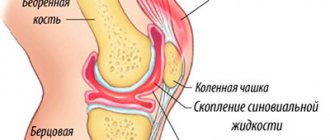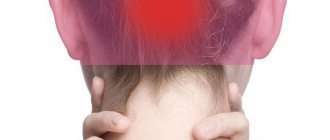What is stress?
Stress is a tense state of the body that appears as a defensive reaction to the influence of various unfavorable factors. Many people, being stressed every day, do not even understand that this is an abnormal phenomenon that needs to be gotten rid of. Stress awaits a person everywhere: at home, at work, on public transport. When stressful situations are irregular, there is nothing to worry about. But when the state of stress lasts a long time and occurs frequently, it is called distress. Against this background, serious illnesses may develop.
Sign No. 4. Uncontrolled shopping
We constantly strive to buy no matter what. The main thing is to make a purchase. The item may turn out to be unsuitable and will eventually be returned, but the shopping experience is repeated over and over again. This is an attempt to cheer up at least for a minute, to give yourself a gift.
Naturally, the joy of acquiring many unnecessary things does not last long. Then the feeling of loneliness, sadness, and melancholy returns. And behind this lies long-term chronic stress.
How to avoid going crazy during a pandemic? 8 tips from the country's chief psychiatrist Read more
Causes of stress
Stress occurs in a person for various reasons. The main factors provoking an unstable state include two main groups of relationships: personal and work. Operating factors include:
- Excessive or insufficient load.
- Poor relationships with colleagues.
- Harsh physical working conditions.
- There is no mutual understanding with management.
- Simultaneous execution of several tasks.
Personal factors include: problems and frequent quarrels in the family, poor nutrition, sleep disturbances, and problems with self-esteem.
Symptoms of psycho-emotional stress
Psycho-emotional stress is characterized by disruption of the functioning of internal organs, as well as mental disorders. A person often begins to have headaches, stomach ache, and blood pressure rises. Weakness appears and sleep is disturbed. If the main symptoms occur, you need to take immediate action and not aggravate the condition.
Physiological signs
When a person gets into a state of stress, he begins to experience constant anxiety and nervousness. An unstable mental state affects the functioning of the entire body, causing the following negative physiological changes:
- Fatigue and weakness.
- Indigestion accompanied by constipation or diarrhea.
- Tremor of the limbs.
- Hair loss.
- Development of skin diseases.
- Heart pain, tachycardia.
- Losing or gaining weight for no apparent reason.
- Headache.
- Insomnia.
People who are in a state of initial or chronic stress have decreased libido and are often plagued by panic attacks.
Psychological signs
High susceptibility to stress is associated with an unstable mental state of a person. He becomes irritable and indecisive. Often feels anxious, suspicious, and panicky. A person under stress cannot concentrate and his memory deteriorates. The mood is most often bad, you don’t like your work, you don’t like your colleagues. Against the backdrop of poor psychological well-being, self-esteem decreases.
Behavioral symptoms
People with mental and physiological disorders begin to experience negative changes in behavior. The person becomes restless and withdrawn, he has no appetite. Loss of appetite often causes weight loss. Behavioral signs also include:
- Speech impairment.
- Loss of interest in one's appearance.
- Incorrect time management.
- Constant rush for no reason.
- Problems in the family or at work are not solved, but only worsen.
High stress levels in the body provoke the development of alcoholism and drug addiction. A person still tries to cope with problems, relax and forget.
Psychological causes of diseases: how immunity depends on stress
The human body is a complex self-regulating system. For its balanced functioning, the mental state is no less important than the physical one. How psychological aspects affect our health and immunity, says Ekaterina Pisarenko, a specialist at the Moscow Psychological Assistance Service.
The body and its systems
Our body is controlled by three regulatory systems: nervous, endocrine and immune. They are closely interconnected.
- The nervous system controls the entire body through neurotransmitters. With the help of the senses, the brain provides us with information about the world around us. It evaluates reality and gives the body a command for further actions, sometimes this happens in a split second.
- The endocrine system , having received a command from the brain, releases hormones that increase or decrease blood pressure, increase or decrease blood flow to the brain and muscles. Hormones also influence other important changes in the body. The endocrine system responds within minutes or hours
- The immune system releases substances such as cytokines. Their task is to resist everything harmful and foreign that can harm the body. The immune system response lasts for months and sometimes years.
As a result, a holistic system of body regulation arises. And if the work of the brain and the endocrine system has been studied quite well, then with the activity of the immune system everything is not so obvious.
How does immunity work?
Immunity is resistance to infections: viruses, bacteria, foreign material. Immunity can be divided into congenital (natural, borrowed from the mother) and acquired (formed during a person’s life, after illnesses).
The human immune system includes many elements: bone marrow, thymus, spleen, lymph nodes, lymphoid tissue. These organs produce several types of cells, which provide protection for the body and also monitor the constancy of the cellular composition. Among the main ones are phagocytes, lymphocytes (produce antibodies), T-killers, etc. All cells of the immune system work like a well-coordinated team: some absorb, others mark, others bind, others act chemically on foreign substances and molecules (viruses, bacteria, cells tumors).
It is known that prolonged stress or prolonged depression negatively affects the functioning of immune cells: they suppress their activity and increase susceptibility to infectious diseases.
Stress scenario
The concept of stress was introduced by Canadian physician and biologist Hans Selye in 1936. He found that the human body reacts biochemically in the same way to joy and pain. True, there is still some difference: a person can experience a negative emotion for a long time (then stress becomes chronic), but great joy passes quickly, because its effect is fleeting. It is long-term exposure to strong emotions that negatively affects the body.
Stress is a universal response of the body to a dangerous or significant situation in order to support its survival. Subjectively, stress is experienced as tension. Objectively, during stress, the nervous, immune, endocrine, cardiovascular, muscular and other systems are mobilized.
At the hormonal level, the body is not able to distinguish between the emotions caused by a possible attack by an animal in the wild and the emotions that we experience when talking with our boss. Accordingly, the more situations a person perceives as dangerous or significant, the more susceptible he is to stress. This susceptibility depends on many factors: heredity, physiological and personal characteristics, culture, upbringing, environment. For example, people with a sensitive psyche will react to many events with a surge of emotions.
"I can not do it anymore!"
Emotions are material. All our feelings have physical consequences due to the influence of the nervous, endocrine, and immune systems. When we are afraid, happy, angry, delighted or upset, the cells of our body release substances that have a directed effect on the entire body. For example, when afraid, the adrenal glands release the fear hormone - adrenaline - into the blood, and the body instantly reacts to it by increasing the heart rate, increasing blood pressure and blood sugar levels. The blood thickens and rushes to the muscles, the blood vessels narrow. All these changes increase the chance of survival, allow a living organism to escape faster and thereby escape from danger.
In our reality, there are not many situations that directly threaten life, but there are enough circumstances under which a person can be in constant tension: fear of the boss’s anger or dismissal, problems in personal relationships... In these cases, the brain gives a signal to the body: “Run, save yourself! The endocrine system reacts by releasing stress hormones: cortisol, adrenaline, and norepinephrine are released. Hormones, in turn, trigger the body’s reserves - all processes are transferred to a higher level of functioning. In this case, a person does not run away anywhere (as in ancient times from a tiger, for example), but remains in a tense state for days, months and even years.
As a result, a moment comes when the worst result is inevitable: the body is exhausted, all reserves are exhausted and mobilization of strength is no longer possible. In this state, a person is vulnerable and susceptible to many diseases: colds, exacerbation of chronic diseases, depression. The immune system is unable to cope with the disease if the body is exhausted and has no resources.
Is it possible to get sick “from nerves”?
Soul and body are elements of one system. Any imbalance in the psyche affects the functioning of the whole organism. Unexpressed or unprocessed negative emotions, such as fear, guilt, anger, resentment, envy and others, are the main cause of psychosomatic illnesses.
According to the world-famous author of best-selling books on psychosomatics, Liz Burbo, long-term suppressed resentment or hatred can lead, among other things, to the occurrence of cancer.
It is known that cancer cells are formed in the human body every day. Killer T cells based in the immune system destroy these cells, preventing them from developing into tumors. However, it happens that the immune system does not respond to emerging cancer cells, and the tumor begins to grow. Numerous studies and surveys of people with cancer have revealed a pattern: most often the disease occurs after suffering psychological shocks, stress, trauma (loss of a loved one, divorce), internal grievances and disappointments that the person did not survive.
Studies also confirm that people who are diagnosed with a serious somatic illness (cancer or diabetes) significantly increase their chances of a positive prognosis if they do not give up, do not give up, do not become depressed, but, on the contrary, seek help, actively treat the disease, continue to live life to the fullest, communicate with friends and loved ones.
Preventing stress and strengthening the immune system
Fortunately, there are mechanisms that help strengthen the immune system and reduce the negative impact of stress on one's health. These mechanisms are simple, effective and accessible to everyone
- Healthy lifestyle Approaching a more natural rhythm of sleep and wakefulness, as well as proper nutrition, really has a qualitative impact on well-being and health. Doctors recommend: going to bed no later than 23.00; Eat a diet with a higher proportion of unprocessed or minimally processed foods; maintain a normal weight within your BMI (body mass index); add physical activity; get rid of bad habits (if any); practice breathing exercises. You don't have to do everything at once. Start small and step by step! Even 10-15 minutes of exercise every morning and regular adequate sleep can improve your health in a few weeks.
- Movement/Exercise Regular physical activity is a key method of managing stress. During physical activity, the natural mechanism for the disposal of stress hormones is activated. Moreover, with exercise lasting more than 20-30 minutes, endorphins begin to be released - hormones of happiness and pleasure. What kind of physical activity you will have - decide for yourself (when choosing, take into account your individual capabilities). For some, walking in the fresh air is suitable, for others - active training in the gym.
- Psychological assistance A professional will help in teaching methods of relaxation and self-improvement. Working with a psychologist increases self-confidence, helps develop self-support skills, experience grievances and negative emotions, and deal with conflict situations in an environmentally friendly manner.
Help is at hand
If you have psychosomatic illnesses, have difficulties in relationships, or are experiencing constant stress due to hard work, you can seek free help from a psychologist in one of the departments of the Moscow Psychological Assistance Service to the Population. 24-hour telephone number for emergency psychological help in Moscow - 051 (from a landline phone), +7 (495) 051 (from a mobile phone). The psychological support chat on the website www.msph.ru is also available 24/7.
Source
Press service of the Department of Labor and Social Protection of the Population of Moscow
Stages of stress development
The effect of stress on the body can be considered as a process that consists of three successive stages of development. Stress should not be confused with nervous tension. The second state is short-term in nature and refers to mental unrest. There are no hormonal surges or changes in the functioning of internal organs due to nervous tension.
First stage: anxiety
The first phase of anxiety occurs as the body's reaction to stimuli. A person experiences a burst of energy, his blood pressure rises, and he begins to worry. The body begins to produce cortisol and adrenaline - stress hormones. In such a state, it is difficult to calm down and pull yourself together.
Second stage: resistance
At this stage, the production of stress hormones decreases somewhat, and the body functions normally, but is on high alert. At this stage, the person calms down a little, and the psychological manifestations of stress disappear.
Third stage: exhaustion
At the third stage, somatic diseases begin to develop. Immunity decreases, against the background of this, protective functions weaken. If the body is in a state of stress for a long time, then disturbances in the functioning of the immune, cardiovascular system, digestion and other organs inevitably develop.
- Anonymously
- For free
- Around the clock
Leave a request for a free consultation with a specialist
We will contact you as soon as possible!
By clicking on the button, you consent to the processing of your personal data
Brief conclusions
- Stress is a physiological response to life's circumstances, but if it persists for longer than necessary, it can be detrimental to your health.
- There are three phases of stress: mobilization, resistance, exhaustion.
- Stress affects the muscular, respiratory, cardiovascular, central nervous, digestive and reproductive systems.
- Stress can lead to depression and can worsen existing health problems and cause new ones.
- It also influences human behavior.
- Resistance to stress depends on certain factors.
- You can minimize the effects of stress with simple recommendations.
Prevention of stress conditions
To prevent acute stress from causing harm to the body, its occurrence and development should be prevented. Preventative measures for stress may include the following:
- Systematic physical exercises. To develop the respiratory system, it is recommended to attend dancing, swimming, and running in the morning.
- Balanced diet. It is necessary to balance the diet, introduce foods rich in vitamins and microelements into the menu.
- Follow the correct daily routine, close to the natural biorhythms of a person. Try to go to bed no later than midnight.
- Meditation. This will help the body restore lost strength and energy. You should devote an hour a day to meditation. Pleasant music will help you recover.
Medicines should only be prescribed by a doctor; self-medication is not recommended.
Types of stress
Psychologists differentiate stress by the duration of symptoms and the cause of their occurrence. Various life situations can influence the development of stress. Only people with a healthy psyche, as well as those who lead a healthy lifestyle, can avoid it.
Chronic emotional stress
This type of stress occurs when you spend a long time in a negative atmosphere. These may be problems in the family that no one can solve. Over time, tension develops into stress, which leads to the development of mental and physiological abnormalities. Experienced psychologists will help you cope with chronic stress.
Psycho-emotional
The main sign of psycho-emotional stress is the presence of emotion in the stress reaction or the inclusion of motivation in it that causes the emotion. A person’s emotional mood in relation to a stimulus causes mental stress.
Destructive
This type manifests itself in two ways. A person may fall into a stupor, become lethargic and apathetic. He is not interested in life and all its joys. Or, on the contrary, an impulsive reaction may occur. The person becomes overly active and fussy. He takes on many things and does not complete any of them.
Short-term
The body's response to a brief but significant impact of a stressful source can be both short-term and long-term. It depends on the severity of the situation and the internal state of the person. People with unstable psyches experience shocks for a long time.
Interior
A stressful state affects all functions of the body, including the functioning of internal organs. Against the background of psychological stress, problems with digestion, breathing, and heart function begin. The help of a psychologist will help not only get rid of psychological problems, but also normalize the functioning of internal systems.
Positive
A slight nervous shock allows you to mobilize internal resources and find a way out of a difficult situation. Usually this is a short-term single stress that quickly passes. A positive shake-up does not bring any consequences for the body.
Nervous
A strong shock or negative situation affects the state of the nervous system. At the same time, the human body begins to produce adrenaline, which further provokes the development of stress. In cases of nervous stress, people are often prescribed antidepressants that improve the condition.
Informational
This type of stress occurs when there is information overload. It is usually experienced by people who do the work and bear great responsibility for the result obtained. When a person does not have time to make the right decision, a stressful situation arises.
What is happiness from a psychological point of view?
In the modern world, the concept of happiness is very often replaced by the concept of owning something or someone: “When I buy an apartment or a new car, get a new job, make a breakthrough in my career, get married, when I have children, then happiness will come." Often people delay happiness, spend their lives waiting for it, and end up disappointed because it never comes.
According to one definition, happiness is not the destination, but the taste of the journey. We are talking about a certain way of living life without getting bogged down in extreme negative emotions, without experiencing extreme attacks of rage, envy, and hatred. How can this be achieved?
Photo: istockphoto.com
Unfortunately, in the modern world, most people live as if on autopilot - without regaining consciousness, without taking their eyes off the smartphone screen, looking through email, videos on YouTube. In the morning they get up, wash, drink coffee, get into the car, turn on the radio or music. At the same time, they are never left alone with themselves, their body, their emotions. The path to happiness lies through awareness: you need to be present here and now, be in the moment and live each in its fullness.
Types of responses to stress
All people react to stress differently. Some become despondent and apathetic. Others begin to show aggression. If measures are not taken in time, the state of stress can turn into prolonged depression, which can only be cured with the help of specialists.
Defensive reaction
A person under stress is always in tension. The most common defensive reaction is aggression or irritability. A person cannot show patience and tact, and breaks down over trifles.
Depression
A mental disorder that develops from various causes requires qualified treatment. Depression often affects people who cannot solve their problems for a very long time. Alcoholics and drug addicts also suffer from depression.
How do you know when it's time to see a psychologist?
You need to contact a specialist when there are disturbances in adaptation - normal physiological and mental functioning. For example, you have problems with sleep or eating: you can’t sleep, you regularly overeat, etc.
Also an alarm bell is auxiliary means for regulating emotions, for example, alcohol. We are not talking about a glass of wine with dinner, but about systematic abuse, when without it you cannot fall asleep or relax.
Photo: istockphoto.com
These are the first signals that indicate that you should contact a specialist. You need to understand that there is nothing shameful, humiliating or dangerous in this. It is better to go to several psychotherapy sessions than to try to solve emotional problems with alcohol.
Ways to get out of stress
You can get out of stress on your own, it is only important to find a suitable way. The most important thing is to bring bright colors into your life, improve your mood, and learn to think positively. Even in a negative situation, you can see the benefits if you want.
Healthy lifestyle
It is necessary to build the correct day and night routine. Meals should be complete and on time. Moderate physical activity, sports and healthy family relationships will only help overcome stress. Don't overwork yourself at work and at home.
Vitamins
Overcoming stress is possible for everyone. It is important that the body receives all the necessary vitamins and microelements. You can buy pharmaceutical complexes, and also eat fruits and vegetables rich in vitamins. In a healthy body, protective functions work perfectly. The psyche and internal systems are not so susceptible to stress.
Rest
Rational rest helps relieve stress and restore. You can’t work too hard, because psychological fatigue is added to physical fatigue. And this is already fraught with stress. During rest, you should not think about work, but while at work, you should not think about home. The ability to switch will help avoid stress.
Full sleep
Nothing restores the body better than healthy, full sleep. During sleep, the body produces hormones responsible for growth and restoration of functions. Therefore, you should try to go to bed before 23-00 in order to get enough sleep and wake up cheerful and in a good mood.
Hobbies
When a person does what he loves, he experiences joy and satisfaction. Any hobby may take time, but it has a beneficial effect on a person’s mental state. This helps to get rid of problems and forget all the bad things for a while. A rested brain will quickly tell you how to cope with negativity.
Physical exercise
Regular physical activity will help release excess adrenaline and help the body relax. Exercising in the fresh air will help normalize breathing and enrich internal organs with oxygen. A morning jog in nature will have a positive effect on your mood, and happiness hormones will begin to be produced.
Aromatherapy, dancing, music
The healing power of aromatic oils has been known since ancient times. They can be added to the bath, applied to the body, or used as an air freshener. When essential oils enter the body, they cause a surge of good mood and euphoria, and calm the nervous system. Dancing and pleasant, soothing music, such as classical, have the same effect on a person.
Sign #3: Drink alcohol to relax
Pouring a glass of wine in the evening, a person tells himself that he has survived a difficult day, and now he can relax. But in reality, every drink of alcohol is an attempt to escape tension in the head, muscles, and emotional state, disguised as a “celebration” of the end of the day.
As a rule, the first glass is followed by a second, gradually this develops into a daily ritual, and then into hidden alcoholism. I note that the stress from such actions only becomes deeper, because it dulls “on the surface”, and the real situation worsens.
Fighting stress in a clinic in Moscow
When you can’t cope with stress on your own, you need to seek help from specialists. Our clinic has created all the conditions to combat psycho-emotional disorders. Each patient has an individual approach, treatment is carried out in several stages. For the greatest effectiveness, complex treatment is used, including drug therapy and psychological assistance.
Drug therapy
Reducing stress occurs with the help of high-quality and effective medicines. Thanks to effective medications, a person’s sleep is normalized, anxiety levels are reduced, and the functioning of internal systems is normalized. Clinic specialists prescribe medications individually to each patient, depending on the severity of the stressful condition, age and the presence of concomitant diseases.
Help from a psychologist
Prolonged experiences, anxiety and panic negatively affect the human psyche. Drug treatment alone is not enough to relieve the patient from stress. This requires the help of an experienced, qualified psychologist. The specialist will conduct a personal conversation and identify the reasons that led to the stressful situation. The support of a psychologist will help you cope with difficulties and problems without harm to the body.
- Service
- Service cost
- Narcologist at home
- from RUR 4,500 order a service
- Coding for alcoholism
- from RUB 5,000 order a service
- Vivitrol coding
- from RUR 26,000 order a service
- Naltrexone coding
- from RUB 35,000 order a service
- Esperal coding
- from RUB 15,000 order a service
- Coding Torpedo
- from RUB 5,500 order a service
- Double block
- from RUR 8,000 order a service
- Classic hypnosis
- from RUB 13,000 order a service
- Ericksonian hypnosis
- from RUR 8,000 order a service
- Tetlong for 3 months
- from RUB 10,500 order a service
- Coding Esperal gel
- from RUB 15,000 order a service
- Narcopsychotherapy session
- from RUB 5,000 order a service
- Doublet - express output and encoding
- from RUB 13,500 order a service
- Hospitalization
- from RUB 5,000 order a service
- Withdrawal from binge drinking in hospital
- from RUR 2,000/day order a service
- Rehabilitation from alcoholism with a guarantee
- from RUB 25,000/month. order a service
- Rehabilitation from drug addiction with a guarantee
- from RUB 25,000/month. order a service
What determines the body's resistance to stress?
Although stress is harmful to everyone, stress levels vary from person to person. This depends on several factors:
- "Support Group".
A strong connection with family or friends can play an important role in managing stress. A person who can rely on others is less stressed than a lonely person.
- Feeling of control.
If you are a confident person and believe that you are in control of your life, you are less likely to become a victim of chronic stress compared to a person who “goes with the flow” and blames circumstances for all his failures.
- Worldview.
Your outlook on life can protect you from chronic stress. If you are an optimist and a hopeful person who is ready to take on life's challenges, you can easily prevent the harmful effects of stress on your emotional well-being and on your body.
- Ability to cope with emotions.
If you have the ability to recognize, accept, and deal with your emotions well, you are much less likely to become bogged down in chronic stress. At the same time, neglecting emotions is not a way out of stress, as many people think. You must give yourself enough time to deal with your emotions and overcome the harmful effects of stress on your body.









